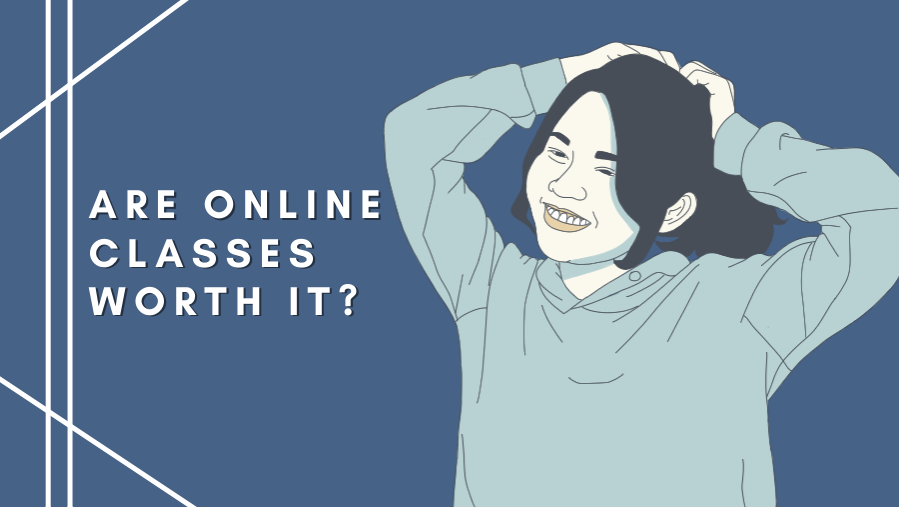
State of Infection: Last Man Standing
October 4, 2021
To Dream Again
October 13, 2021Are Online Classes Worth It?

Would online classes be sufficient for students to be competent in their chosen field? Can it prepare students for the real world?
A lot of events have happened ever since the pandemic started. The whole world was and still is in chaos. While the government keeps on doing their so-called “best” in managing the situation, schools decided to continue education through online learning despite the protests and petitions for an academic freeze. For them, it is better to have classes stay open than to stop it, but was it even worth it?
The fear of getting left behind scared almost all students into enrolling. However, some students could not afford to. Education itself is already challenging pre-pandemic, what more with online education wherein gadgets and stable internet connections are necessary? Not all students have enough money for these things. Moreover, there is no assurance that the quality of education would even be good.
This whole mess led me to think if the higher-ups even thought of their plans thoroughly. Did they even think of the possible consequences and effects of academic ease when they implemented it, or did they rely on the resiliency of students to make it all work out in the end?
In the first year of online and modular learning, we experienced drastic changes that affected us physically and mentally. Back pain, eye strain, academic burnouts, and a different level and gravity of stress have turned our lives as students 180 degrees. It became more challenging and demanding. And now that we are in our second year of this mode of learning, can we attest that we are learning, or are we simply doing tasks to submit requirements before 11:59 pm for the sake of it? Is online learning even molding us to become the future professionals that we want to be? If you were to ask me, I would say that this kind of system is not effective at all.
The quality of education is compromised and I know that the majority of students would agree. In elementary schools, not all students answer their modules themselves. Their parents and relatives do their requirements for them. I know for sure these acts of cheating happen because I have witnessed it in our community. Parents are more competitive than the students themselves. As for high school or senior high school students, there is a controversial group page named “Online Kopyahan.” There is no explanation needed for this group. It is what it is. For us college students, it is a combination of all of the cons. Plus, we do not even get the proper education that should have trained and developed us into competitive professionals that we could have acquired if only we managed to get back to our normal lives. Some students even chose to drop out since they knew that they were not even learning at all and the expenses were too high for such subpar education.
With these kinds of issues arising, is academic ease still the best solution? Is adapting the best thing we could do? Although it is important to adapt to current situations, has it ever crossed anyone’s minds why we are even adapting when we could have recovered from it already? If only those in power understood their roles in the government, just like New Zealand’s prime minister, Jacinda Ardern.
We are known for being resilient, yet we failed to apply that to our situation up until now. Is there any benefit to online learning? Would online classes be sufficient for students to be competent in their chosen field? Can it prepare students for the real world? These were and still are the questions I wished were answered with a yes.
LAYOUT BY: Sigrid Deryll Q. Dy


